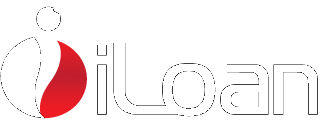Refinancing debt using an FHA loan is a strategy that has gained attention, especially among homeowners seeking to consolidate their debt in a more manageable and cost-effective way. This blog post will explore the various aspects of refinancing debt with an FHA loan, including what it entails, the benefits, and how to qualify.
Call today (888)416-4805 or get started online today.
What is FHA Debt Refinancing?
FHA debt refinancing involves replacing your current mortgage with a new FHA loan, often with different terms. This can include consolidating various types of debt, such as credit cards, medical bills, or student loans, into your mortgage. The FHA (Federal Housing Administration) insures these loans, which are issued by approved lenders.
Types of FHA Refinance Options for Debt Consolidation
There are several FHA refinance options that homeowners can consider for debt consolidation:
- FHA Cash-Out Refinancing: This option is ideal for homeowners who have accumulated equity in their homes. It allows you to refinance for more than you owe on your current mortgage and use the extra cash to pay off other debts. As per 2024 standards, you can borrow up to 85% of your home’s value for debt consolidation purposes.
- FHA Simple Refinancing: This option is a straightforward process, primarily aimed at replacing an existing FHA insured loan with a new FHA loan, possibly with better terms. It’s especially useful for transitioning from an adjustable-rate mortgage (ARM) to a fixed-rate loan.
- FHA Streamline Refinancing: Streamline refinancing is designed for those who already have an FHA loan and wish to refinance without the extensive process of a full credit check or property appraisal. It’s a faster and less paperwork-intensive option.
Benefits of FHA Debt Refinancing
- Lower Interest Rates: Refinancing can potentially lower your overall interest rate, especially if you’re consolidating high-interest debts like credit card balances.
- One Monthly Payment: It simplifies your finances by combining multiple debt payments into one.
- Improved Cash Flow: By extending the loan term or reducing the interest rate, you can reduce your monthly payments, freeing up cash for other expenses.
- Potential Tax Benefits: Mortgage interest payments might be tax-deductible, unlike other forms of debt.
How to Qualify for FHA Debt Refinancing
Qualifying for an FHA debt refinancing involves several criteria:
- Credit Score and Payment History: Lenders will consider your credit score and payment history on your current mortgage. For a cash-out refinance, a history of timely payments is crucial.
- Home Equity: Especially for cash-out refinancing, having enough equity in your home is essential.
- Debt-to-Income Ratio: This ratio determines your ability to manage monthly payments and repay debts.
- Appraisal: For some refinancing options, your property might need to undergo an appraisal.
Conclusion
FHA debt refinancing can be a smart financial move for homeowners looking to consolidate their debts under better terms and potentially lower interest rates. However, it’s important to carefully consider your financial situation and consult with a mortgage advisor to determine the best course of action.
For more detailed guidance and current FHA refinancing options, you can contact our FHA Mortgage Professionals for in-depth information on the subject.
Remember, refinancing is a significant financial decision, and understanding all aspects of it is crucial to ensure it aligns with your long-term financial goals.
Call today (888)416-4805 or get started online today.


No Comments
Be the first to start a conversation